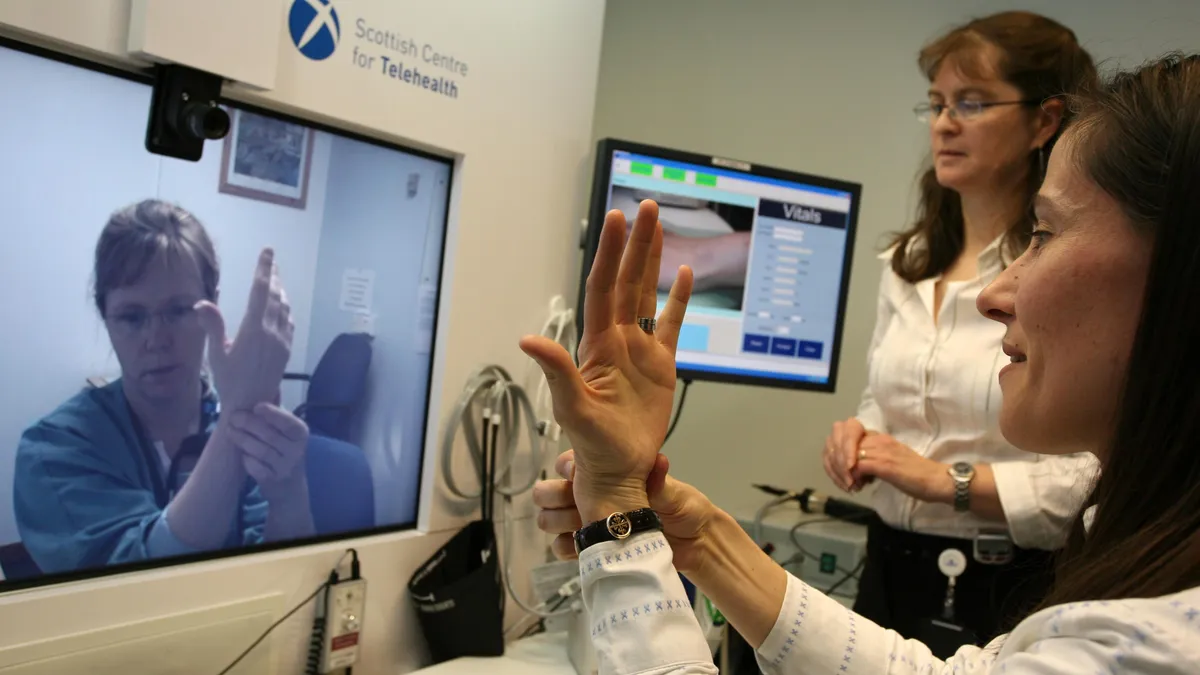Dive Brief:
- CMS proposed a rule on Thursday that would make looser restrictions on home health providers' use of telehealth permanent after the pandemic.
- Home health agencies will be able to "continue to utilize telecommunications technologies in providing care to beneficiaries under the Medicare home health benefit beyond the COVID-19" emergency, such as remote patient monitoring, CMS said in a fact sheet. However, the technology must be outlined in the care plan, tied to a specific treatment goal and related to the skilled services being provided.
- CMS also estimates updating the payment rates, which is based on the Physician Fee Schedule for 2021, will result in a 1% to 2% oscillation in payments to home infusion therapy suppliers, increasing or decreasing them by $1 million at most.
Dive Insight:
The Trump administration has rolled back restrictions to telehealth use since March, making it much easier for patients to see their doctors while complying with stay-at-home orders. Adoption of virtual care has skyrocketed as a result and, facing supportive consumers, providers and telecommunications vendors, HHS is looking into what regulatory flexibilities can remain post-national emergency.
McKinsey estimates roughly 20% of all Medicare, Medicaid and commercial outpatient, office and home healthcare spending could eventually be digitized.
Under Thursday's proposed rule, the costs of virtual care would become permanently allowed administrative costs for the roughly 11,200 home health agencies registered with Medicare. However, telehealth can't be used as a substitute for a planned in-person home visit, and can't be considered a home visit for the purposes of patient eligibility or reimbursement.
The Trump administration is also looking to change payment rates for home health providers that would increase Medicare payments by 2.6%, or roughly $540 million, for the 2021 calendar year.
Six million older Americans, by one estimate, receive home health, which includes skilled nursing, physical therapy, speech-language pathology, occupational therapy, home health aides and medical social services. Demand is only likely to rise as the population skews older, though some are suspending the service due to fears of contracting the virus from their aides and nurses.
Thursday's rule could ameliorate that concern by continuing to incentivize remote care beyond the end of the national emergency, slated to time out at the end of July.
"These proposed changes are one of the first flexibilities provided during the COVID-19 [national emergency] that CMS is proposing to make a permanent part of the Medicare program," the fact sheet reads.
The proposed rule would also impose a 5% cap on wage index decreases for one year, and finalize changes to the home health infusion therapy benefit established by the 21st Century Cures Act. Cures requires the new benefit, which allows Medicare beneficiaries to receive drugs intravenously or subcutaneously at home, to be implemented by Jan. 1, 2021.













